Uruguay Digital Nomad Visa - 2025 Update
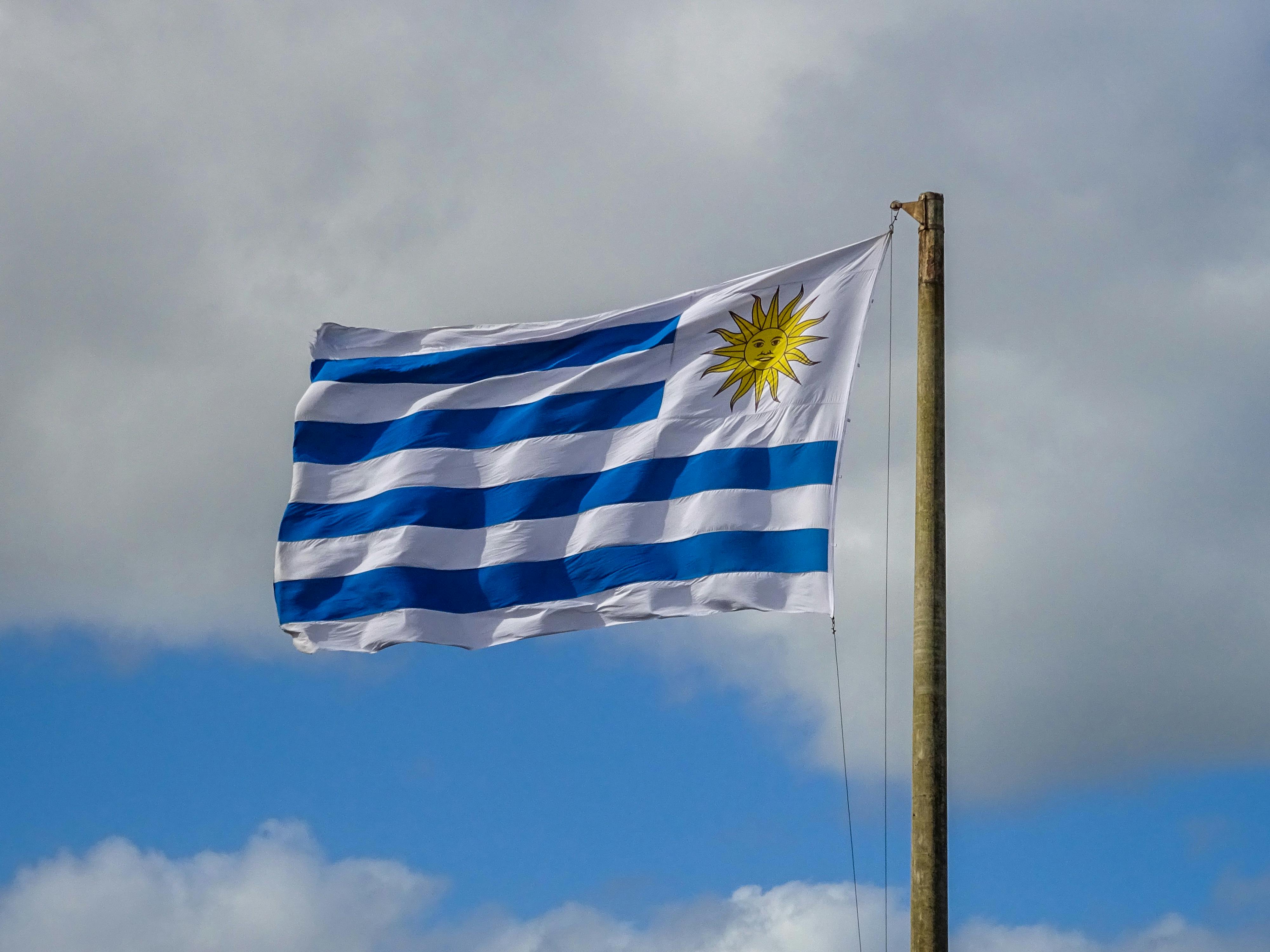
Quick Visa Facts
Visa length 6 months
Possible to extend? Yes, for an additional 6 months.
Who can apply? Remote workers, freelancers, self-employed with foreign income
Minimum Income Requirements While there is no official minimum income requirement, many budget around USD $1,500–$2,000 per month
Time for visa applications 1–3 weeks (varies by processing method)
Want to know if you can apply?
Complete a visa quiz and see if you qualify!
Dreaming of working remotely from a country with stunning coastlines, a laid-back lifestyle, and one of the highest standards of living in South America? Uruguay has introduced the Digital Nomad Visa, officially called the Digital Nomad Permit, to make that dream a reality. This program allows remote workers, freelancers, and entrepreneurs to live in Uruguay while working for clients or companies abroad.
With its reliable internet, vibrant cultural scene, and reputation for safety and stability, Uruguay is quickly becoming a top choice for digital nomads seeking a new base. Whether you want to settle into a cozy café in Montevideo, enjoy the beaches of Punta del Este, or experience the slower pace of small-town life, the Uruguay digital nomad visa opens the door.
In this guide, we’ll walk you through everything you need to know about the program, from eligibility and required documents to taxes, application steps, and what life in Uruguay is really like for digital nomads.
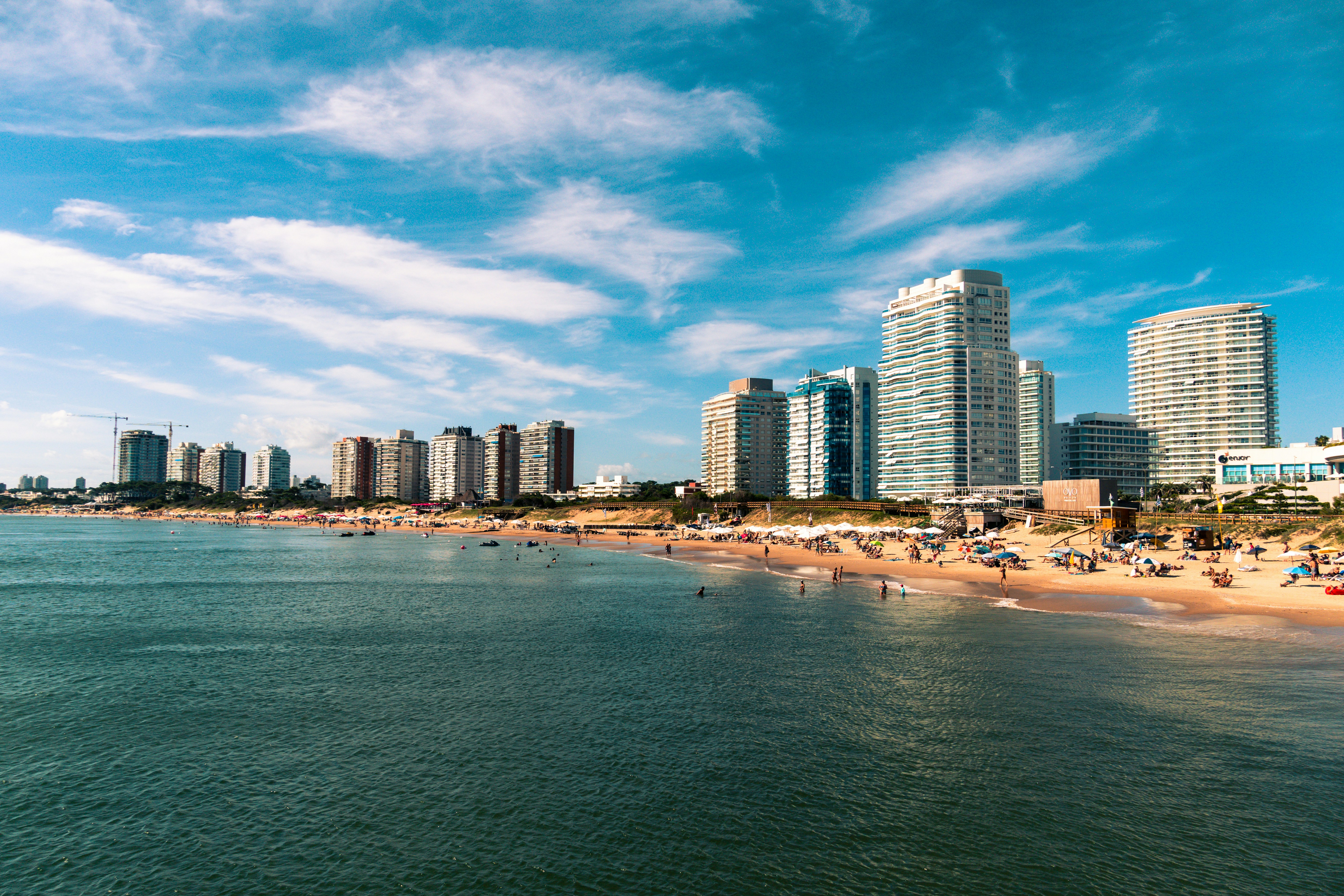
Uruguay Digital Nomad Visa Overview
Uruguay introduced a legal framework for digital nomads in May 2023, via Decree 238/022, making it possible for remote workers, freelancers, and self-employed people working for companies outside Uruguay to apply for a special residence permit.
This permit is officially known as a Digital Nomad Permit (or “Residence Permit for digital nomads”/“Temporary Identity Document – nomads”). It grants foreign remote workers the right to live and work legally in Uruguay, typically for a period of six months, with the option to renew for an additional six months or transition to temporary or permanent residency if desired.
Who Is It For?
Individuals who work remotely (freelancers, self-employed, or employed by non-Uruguayan companies) and whose work is not tied to a local Uruguayan employer.
Foreign nationals entering Uruguay (often initially as tourists) who want to stay legally longer in the country while continuing remote work for external clients.
Digital nomads who meet certain conditions (proof of financial means, clean criminal record in relevant countries, etc.) can apply for extension or for further residency.
What Does It Allow You to Do?
Legally reside in Uruguay for 180 days (six months), and renew for another 180 days.
Work remotely while in Uruguay, provided your employer/clients are outside Uruguay (i.e. you are not on a Uruguayan payroll).
Use Uruguay’s civil identity infrastructure: once the permit is approved, you can obtain the Uruguayan provisional identity document (“cédula uruguaya” / document through the National Civil Identification Office) which helps with formalities.
After the six-month initial period plus the possible extension, apply for longer-term residence (temporary or permanent) if you decide to stay.

Uruguay Digital Nomad Visa Requirements
Here are the basic documents and special requirements you need to have to apply for Uruguay’s Digital Nomad Permit.
Basic documents needed:
Valid passport (original plus copy)
Completed online application form with personal information.
Signed affidavit declaring that you have the means to support yourself financially during your stay.
Copy of past criminal record/certificate from countries where you’ve lived, especially those where you stayed over 6 months in the last 5 years.
Vaccination record including certain vaccines (e.g. tetanus, measles), issued by a Ministry-of-Health authorized provider in Uruguay.
Proof of identity as used to enter the country (passport or other travel ID)
Proof of Financial Self-Sufficiency
Applicants must sign a sworn affidavit confirming they have sufficient financial resources to support themselves during their stay.
There is no official minimum income requirement set by law.
However, it’s advisable to be able to demonstrate consistent income or savings that reasonably cover your living expenses in Uruguay. Many digital nomads budget around USD $1,500–$2,000 per month for comfortable living.
Clean Criminal Record
For the initial application, you may only need to sign a statement affirming you have no serious criminal record.For the six-month extension, you must provide official certificates showing you have no criminal or judicial record in:
Your country of origin, and
Any country where you’ve lived for more than six months in the last five years.
Private Health Insurance / Vaccination Records
Applicants must hold valid health coverage for the duration of their stay in Uruguay. Travel insurance is not accepted; it must be long-term residency health insurance. You can find our recommendations for the best health insurance plans for digital nomads here.
A vaccination certificate issued by an institution authorized by Uruguay’s Ministry of Public Health is required. This must include proof of standard vaccines (such as tetanus and measles). For extensions, this vaccination record must be issued within Uruguay.

How to Apply for the Uruguay Digital Nomad Visa – Step-by-Step Instructions
Applying for Uruguay’s Digital Nomad Permit is a straightforward process handled through the country’s Dirección Nacional de Migración (National Migration Office). Here’s a step-by-step breakdown:
Step 1: Enter Uruguay
Unlike many other visas, you don’t apply from abroad. You first enter Uruguay, typically on a tourist entry (visa-free for many nationalities), and then apply for the Digital Nomad Permit while you are in the country.
Step 2: Complete the Online Application Form
Go to the official Dirección Nacional de Migración website and select the option for Residencia Provisoria – Nómadas Digitales. Fill out the application form with your personal details, passport information, and proof of remote work. Upload required documents (passport scan, affidavit of financial self-sufficiency, vaccination record, etc.).
Step 3: Pay the Application Fee
Pay the government processing fee online. Keep a copy of your payment receipt, this will be needed for later steps.
Step 4: Submit and Book Your Appointment
Once the form and documents are submitted, you’ll receive confirmation. Book an appointment at the Dirección Nacional de Migración office in Montevideo or another designated office to finalize your application.
Step 5: Attend Your Appointment
Bring your passport, printed application confirmation, and all original supporting documents.Provide biometric data (photo and fingerprints). Submit your sworn affidavit of financial means and vaccination certificate.
Step 6: Receive Your Digital Nomad Permit
Once approved, you will be granted a temporary residence permit valid for 6 months. You can also obtain a Uruguayan provisional ID card (cédula de identidad) through the National Civil Identification Office, which makes local transactions and services easier.
Step 7: Apply for Renewal or Residency (Optional)
Before your initial 6-month permit expires, you may apply for a renewal of another 6 months. At this stage, additional documents such as a criminal record certificate will be required. If you want to stay longer, you can later transition into temporary or permanent residency.

Uruguay Stay Requirements
Holders of the Uruguay Digital Nomad Permit are allowed to remain in the country for up to six months from the date of approval. During this time, they must maintain valid health coverage and ensure that their passport remains valid for the duration of their stay. If you wish to remain in Uruguay beyond the initial period, you can apply for a six-month extension before your permit expires. The extension requires additional documentation, including a criminal record certificate from your country of origin and from any country where you have lived for more than six months in the past five years.
It is important to note that while the permit allows you to live in Uruguay, you are expected to continue working only for employers or clients based outside the country. You cannot take up local employment under this permit. If you plan to stay longer or make Uruguay your permanent base, you can later transition from the digital nomad permit to a temporary or permanent residency.
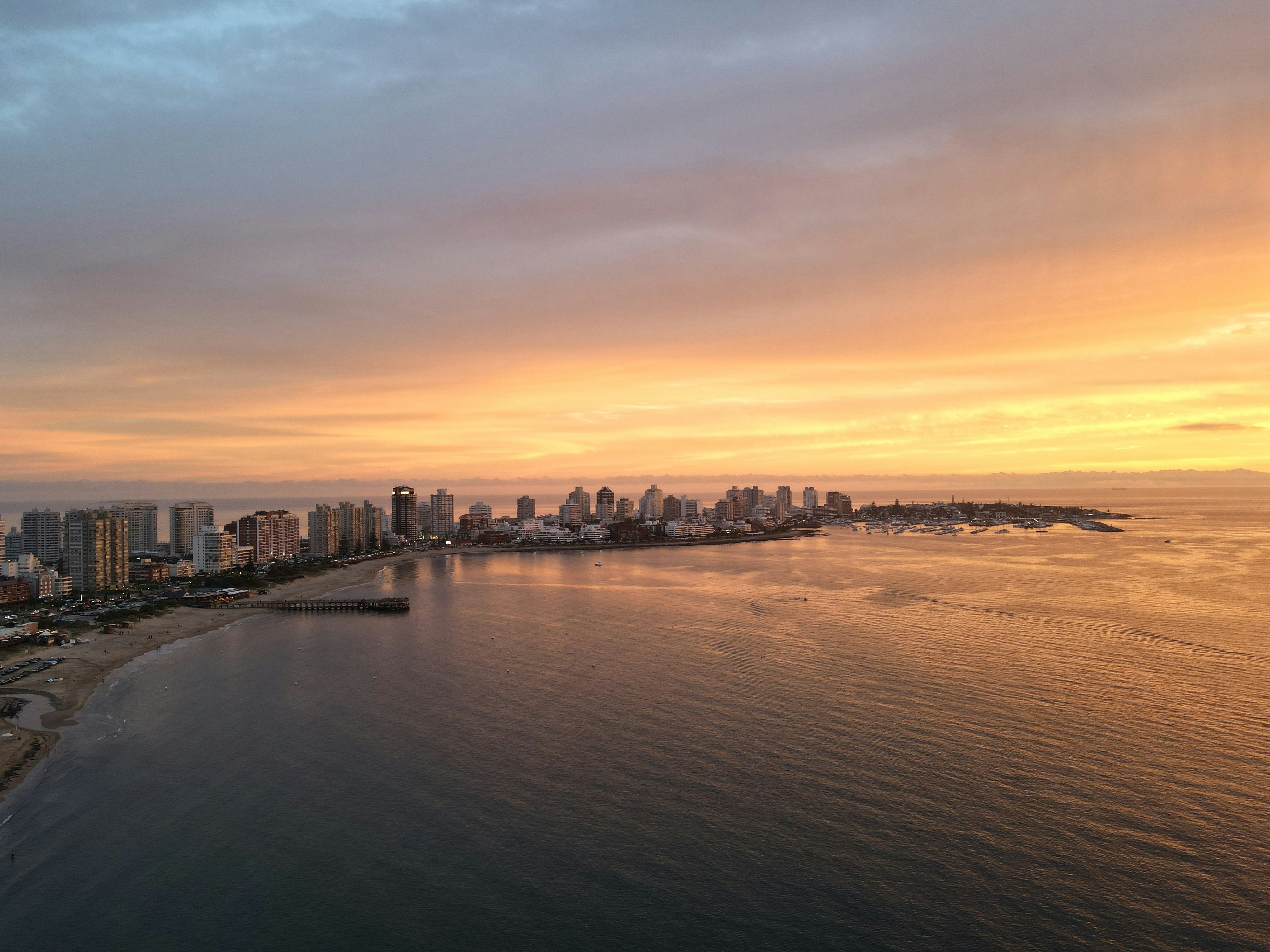
How Much Does the Uruguay Digital Nomad Visa Cost?
Applying for Uruguay’s Digital Nomad Permit is relatively affordable compared to many other digital nomad visas. The main cost is the government application fee, which is approximately USD $11 (390 Uruguayan pesos), payable online when you submit your application through the Dirección Nacional de Migración platform. In addition to the government fee, you should budget for related expenses that may arise during the process, such as:
Obtaining official documents like vaccination certificates or criminal record checks in your home country.
Translation or legalization of documents, if required.
Private health insurance, which varies in cost depending on your provider and level of coverage.
Optional costs associated with applying for a provisional Uruguayan ID card once your permit is approved.
Overall, the direct application fee is very low, making Uruguay one of the most accessible destinations for digital nomads in terms of visa costs. However, the total amount you spend will depend on your personal circumstances and the supporting documents you need to provide.

Taxes for People With a Uruguay Digital Nomad Visa
One of the biggest advantages of the Uruguay Digital Nomad Permit is its favorable tax situation for remote workers. Individuals holding this permit are not considered Uruguayan tax residents solely based on their temporary stay, meaning that income earned from foreign employers or clients is generally not subject to Uruguayan income tax.
However, there are some important points to keep in mind:
Duration of stay matters: If you remain in Uruguay for more than 183 days in a calendar year, you may be considered a tax resident under local law, which could make your worldwide income subject to Uruguayan taxation.
Foreign income only: To benefit from the tax exemption, your work must be performed remotely for clients or employers outside Uruguay. Any income earned from local Uruguayan sources would be taxable.
Social security contributions: As a digital nomad, you are typically not required to contribute to Uruguay’s social security system if you remain employed or self-employed abroad, but you should maintain compliance with social security obligations in your home country.
Record keeping: It’s recommended to maintain clear documentation of your foreign income, contracts, and payment records to demonstrate that your income originates outside Uruguay if questioned by local tax authorities.
Overall, Uruguay provides a flexible and tax-friendly environment for digital nomads, allowing you to live in the country while continuing to earn income from abroad without additional local tax burdens.

Living in Uruguay with the Digital Nomad Visa
Uruguay offers a relaxed yet modern lifestyle that makes it an attractive destination for digital nomads. Cities like Montevideo and Punta del Este provide reliable internet, a growing network of coworking spaces, and vibrant cultural scenes, including cafes, restaurants, and local markets. Smaller towns and coastal areas give you the chance to enjoy a slower pace of life, with access to beautiful beaches, parks, and nature. Safety and political stability are also key advantages, allowing digital nomads to focus on work and leisure without the stress often found in larger or less stable countries.
The cost of living in Uruguay is moderate compared to other Western countries, though it can vary depending on lifestyle and location. Renting an apartment in Montevideo or Punta del Este is more expensive than in smaller towns, but overall, remote workers can comfortably cover living expenses on a monthly budget of around USD $1,500–$2,000. Health care is accessible, and with private health insurance as required by the digital nomad permit, you can ensure comprehensive coverage. Living in Uruguay also offers the opportunity to immerse yourself in local culture, enjoy fresh cuisine, and connect with a growing community of international remote workers.
Best Cities to Live in Uruguay
Montevideo
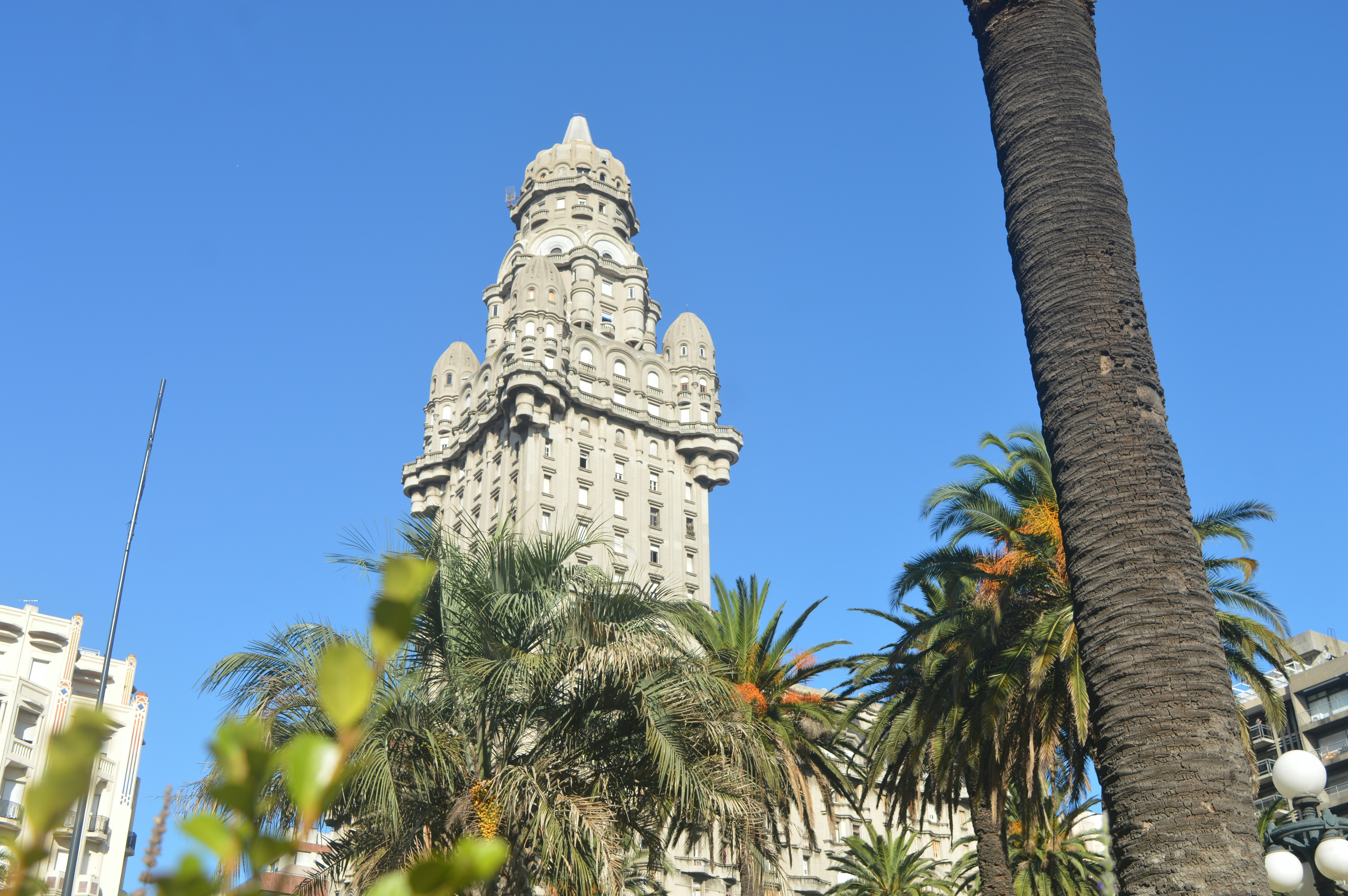
Montevideo, the capital and largest city of Uruguay, is a vibrant hub for digital nomads. The city combines modern infrastructure with historic charm, featuring lively neighborhoods, beachfront promenades, and a thriving cultural scene. Montevideo offers reliable high-speed internet, numerous coworking spaces, and plenty of cafes and restaurants where remote workers can set up shop. Its mix of urban convenience and relaxed coastal living makes it ideal for those seeking both productivity and leisure.
Punta del Este
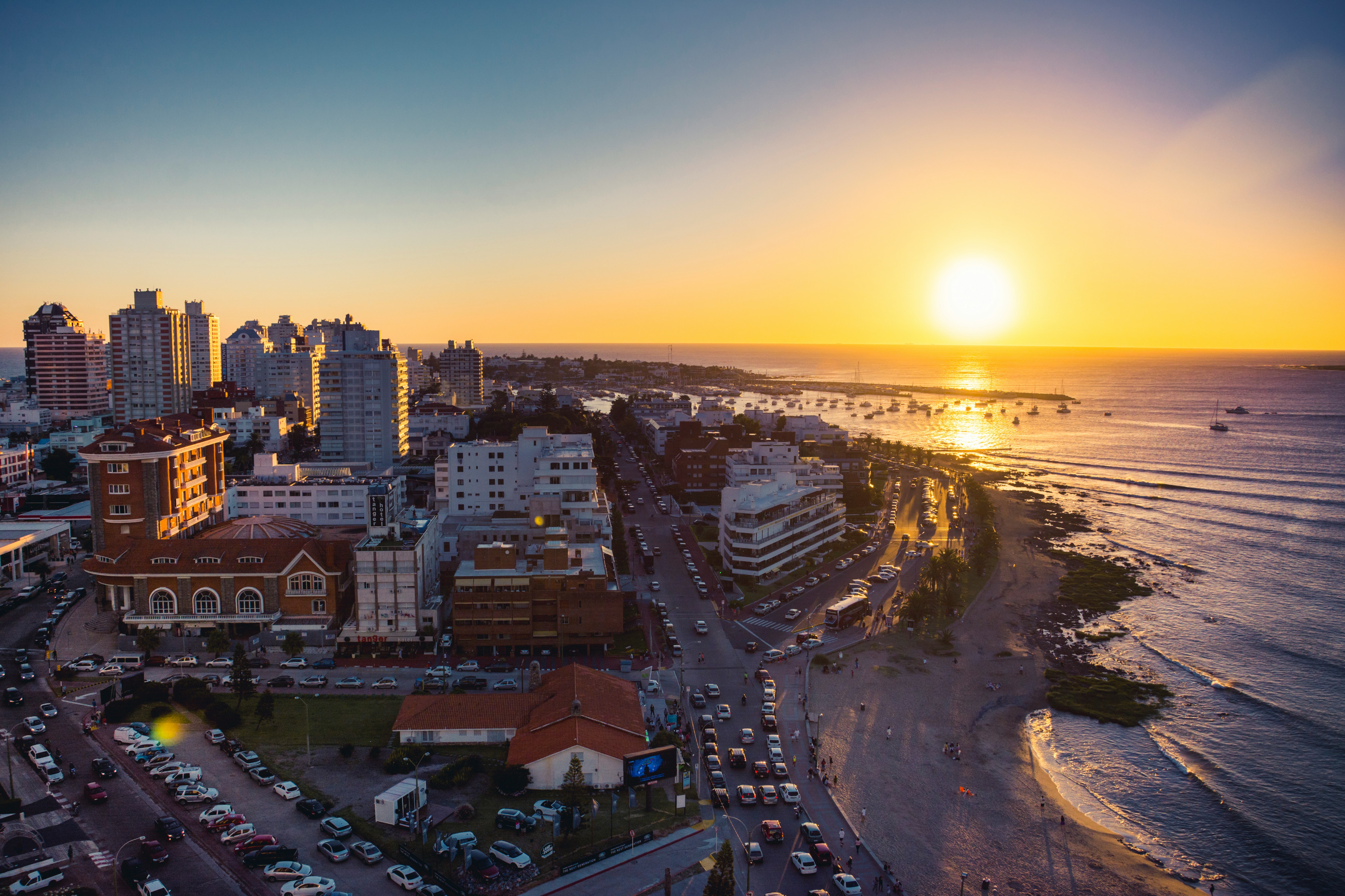
Known as Uruguay’s premier beach destination, Punta del Este is perfect for digital nomads who want to combine work with a resort-like lifestyle. This city is famous for its stunning beaches, luxury amenities, and vibrant nightlife. While the cost of living is higher than in other parts of Uruguay, Punta del Este offers excellent internet connectivity, coworking hubs, and opportunities to network with other international residents. Its energetic atmosphere is well-suited for those who want to balance work with a dynamic social and cultural life.
Colonia del Sacramento

Colonia del Sacramento is a historic town with a slower pace of life, ideal for digital nomads looking for tranquility. Its cobblestone streets, colonial architecture, and scenic riverside views create a charming environment that’s both picturesque and peaceful. Internet connectivity is reliable enough for remote work, and the town offers a variety of cafes and quiet spots to focus on projects. Colonia is perfect for those who want to immerse themselves in culture, enjoy a relaxed lifestyle, and stay connected while working remotely.
Cost of Living
The official currency of Uruguay is the Uruguayan Peso (UYU). As of September 18, 2025, the exchange rate is approximately 1 USD = 39.99 UYU
The average net monthly salary in Uruguay is around 41,717 UYU, which equates to approximately $1,670 USD
Here’s a rundown of what you should expect to pay in different cities:
Montevideo
Rent (1 bedroom in city center): Approximately $900 USD.
Rent (3 bedrooms outside city center): Approximately $1,200 USD.
Basic Utilities (electricity, heating, cooling, water, garbage): Approximately $160 USD.
Wi-Fi (60 Mbps or more, unlimited data): Approximately $31 USD.
Public Transport (one-way ticket): Approximately $1.30 USD.
Groceries (2 people): Approximately $960 USD.
Punta del Este
Rent (1 bedroom in city center): Approximately $1,500 USD.
Rent (3 bedrooms outside city center): Approximately $2,000 USD.
Basic Utilities (electricity, heating, cooling, water, garbage): Approximately $151 USD.
Wi-Fi (60 Mbps or more, unlimited data): Approximately $28 USD.
Public Transport (one-way ticket): Approximately $1.30 USD.
Groceries (2 people): Approximately $960 USD.
Colonia del Sacramento
Rent (1 bedroom in city center): Approximately $800 USD.
Rent (3 bedrooms outside city center): Approximately $1,100 USD.
Basic Utilities (electricity, heating, cooling, water, garbage): Approximately $160 USD.
Wi-Fi (60 Mbps or more, unlimited data): Approximately $40 USD.
Public Transport (one-way ticket): Approximately $1.30 USD.
Groceries (2 people): Approximately $960 USD.
FAQs
Who is eligible for the Uruguay Digital Nomad Visa?
The permit is available to foreign nationals who work remotely for companies or clients outside Uruguay. Freelancers, self-employed professionals, and employees of non-Uruguayan companies are all eligible, provided they can demonstrate financial self-sufficiency and meet basic document requirements.
How long is the Uruguay Digital Nomad Permit valid?
The initial permit is valid for six months. It can be renewed for an additional six months, after which holders may choose to transition to temporary or permanent residency if they wish to stay longer.
Can I work for a local Uruguayan company while on this visa?
No. The digital nomad permit only allows you to work remotely for foreign clients or employers. Employment with local Uruguayan companies is not permitted under this visa.
Do I have to pay taxes in Uruguay while on the digital nomad permit?
Income earned from foreign sources is generally not subject to Uruguayan income tax. However, if you stay in Uruguay for more than 183 days in a year, you may be considered a tax resident and could be liable for taxes on worldwide income.
Can I bring my family with me on the digital nomad permit?
The standard permit is issued to the individual applicant. Family members may require a separate visa or residence permit. It's recommended to consult the Dirección Nacional de Migración for specific guidance regarding dependents.
Author
Nadia Dardón is a content creator from Guatemala. She has worked fully remotely for the past six years as a copywriter, editor, and content creator, working for different industries. She started her digital nomad journey in 2022 and currently lives as an expat in Spain.
